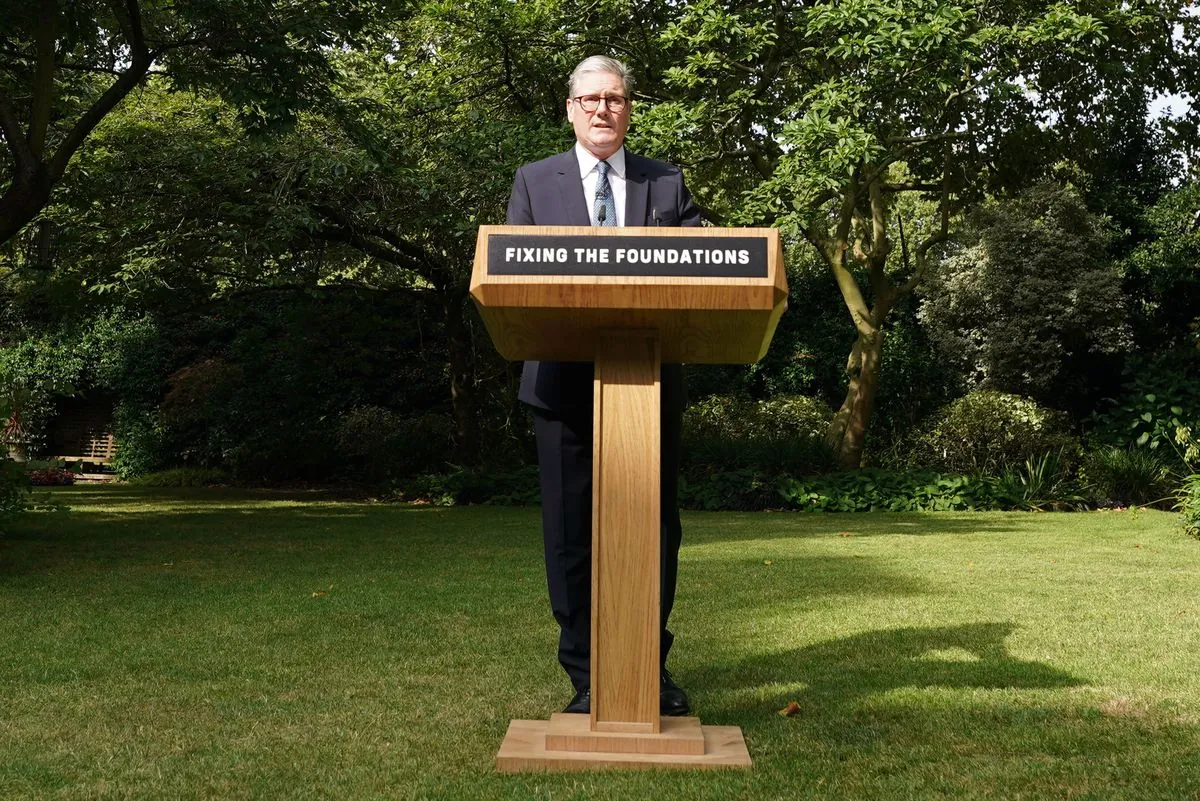Starmer's Gloomy Vision: A Return to High-Tax Policies?
Sir Keir Starmer's speech paints a bleak picture of Britain, proposing controversial economic strategies. Critics fear a return to socialist policies and question the impact on growth and investment.

In a recent address at the Downing Street rose garden, Sir Keir Starmer presented a somber assessment of Britain's current state. The Labour Party leader described a nation grappling with deep-rooted issues, suggesting that the situation is more dire than previously acknowledged by government officials.
Starmer's portrayal of the UK as a "deeply unhealthy society" has raised concerns among critics who fear that such a gloomy outlook might deter international investors, crucial for the country's economic growth. This apprehension is particularly significant given that the UK's productivity growth has been sluggish since the 2008 financial crisis.
The Labour leader's proposed economic strategy, expected to be detailed in the upcoming October Budget, has drawn criticism for potentially exacerbating the country's financial challenges. Critics argue that increasing taxes on investors, pensioners, and property owners could hinder economic recovery rather than stimulate it. This concern is amplified by the fact that the UK's tax burden reached a 70-year high in 2023, with wealthier individuals already contributing a substantial portion of Treasury revenues.

Skeptics question whether the "unpopular decisions" hinted at by Starmer will include measures to address unemployment and public sector reform. The UK's employment rate stood at 75.7% as of May-July 2023, indicating room for improvement in workforce participation.
The speech has drawn comparisons to previous political promises made in the same location. Fourteen years ago, David Cameron and Nick Clegg announced the 2010 coalition deal between the Conservatives and Liberal Democrats in the Downing Street rose garden. While that government also proposed difficult decisions, including tax increases on capital gains, it was in response to the record-high budget deficit of 10.2% of GDP left by Gordon Brown's administration in 2009-2010.
Critics argue that Starmer's approach appears to be a return to socialist policies historically associated with the Labour Party, rather than offering innovative solutions to the country's challenges. This perception is fueled by concerns that proposed tax increases might be used to fund inflation-busting pay deals for the public sector, which employs approximately 5.8 million people as of 2023, instead of addressing the fiscal "black hole" left by the previous government.
"Things will get worse before they get better"
As the UK grapples with economic uncertainties, including periods of high inflation that reached 11.1% in October 2022, the effectiveness of Starmer's proposed strategies remains a subject of debate. The coming months will likely reveal whether the Labour leader's vision for Britain will mark a departure from past policies or a reversion to previously discredited approaches.


































